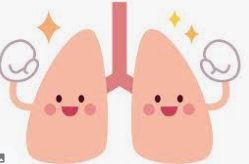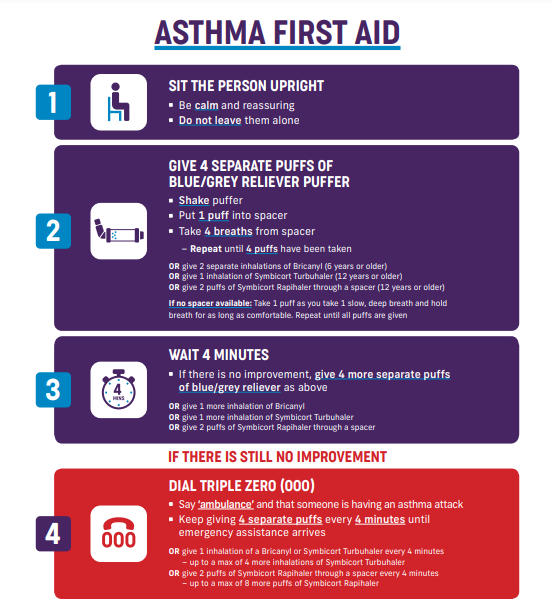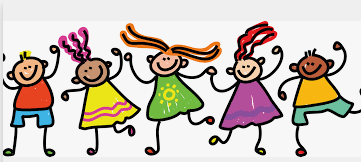Health Centre News
By Nurse Cecile

Health Centre News
By Nurse Cecile
Supporting your child with Asthma
Many people experience an increase in asthma symptoms and find their asthma harder to control when the air turns cold. During the school holidays, it is a good time to get a check with your GP to assess your child's asthma to help prevent flare ups.
Asthma causes the muscles in the airways to tighten and the lining of the airway becomes swollen and inflamed, producing sticky mucous. These changes cause the airways to become narrow, making it difficult to breathe.
Asthma can be triggered by a range of factors such as pollen, house dust mites, cigarette smoke, exercise or associated with a cold.
Asthma cannot be cured, but with good management, people with asthma can lead normal, active lives. A range of programs and services are available to support people with asthma.
It is important to have your child assessed regularly by your doctor if they have asthma, especially during the colder weather when viruses are more common.
Asthma Action Plans are required to be provided by parents to the school if your child is diagnosed with asthma. This ensures we support your child's health needs appropriately.
They should be updated annually or if there are any changes to your child's asthma needs.
Keep taking care of your child's asthma - this helps keeps their lungs healthy


Asthma tends to run in families. Asthma affects everyone differently, and two children from the same family can have different asthma patterns and triggers. Typical asthma symptoms include:
These symptoms are often worse at night, in the early morning or during exercise. Symptoms may be different for children. Find out more about asthma in children.
The triggers for asthma symptoms vary for different people. Some common triggers are:
In addition, asthma can also be triggered by an uncommon combination of high grass pollen levels and a certain type of thunderstorm, causing many people to develop asthma symptoms over a short period of time. This is known as epidemic thunderstorm asthma.
These events are uncommon and don’t occur every year, but when they do, they can happen in south-east Australia during the grass pollen season, from October through December.
Asthma can be well controlled with the appropriate medication in almost all people. The main types of asthma medication are:
Using a spacer with your inhaler ensures medication is distributed more effectively throughout the lungs and therefore gives a better response.
Your GP will prescribe the correct medication and explain how to use it.
For good asthma management, it is important that you:
Ask your GP for a personal written asthma action plan. As well as being a reminder of your usual treatment, an action plan helps you to recognise worsening asthma and tells you what to do in response.
If your child has asthma, give copies of the action plan to the school and to anyone else who regularly looks after your child.
Watch this video to learn more about good asthma management from the National Asthma Council.
An asthma attack can come on gradually (for example, if a person gets a cold) or quite quickly (for example, if a person inhales something they are allergic to, such as pollen).The symptoms to look out for include:
An asthma attack can become life threatening if not treated properly, even in someone whose asthma is usually mild or well controlled.
If someone is getting an asthma attack, follow the instructions in their asthma action plan. If they don’t have an action plan or you aren’t sure what to do, follow the four steps of asthma first aid.


In an emergency, always call triple zero (000) and ask for an ambulance. Tell the operator that someone is having an asthma attack. The signs of an asthma emergency include when the person:
While waiting for the ambulance, continue to follow the 4 steps of asthma first aid and give 4 puffs of reliever medication every 4 minutes.
If you have any concerns regarding your child's asthma and support required at school, please do not hesitate to contact me to discuss further.
cecile.elliott@education.vic.gov.au
Phone : 9592 0177

